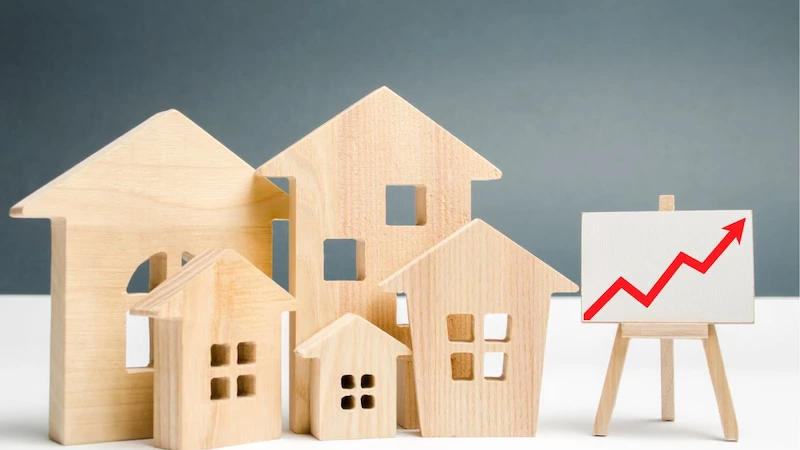Compare Mortgage Rates today
Find the best mortgage rates for your home loan
Will mortgage rates go down?
Lorem ipsum dolor sit amet, consectetur adipiscing elit. Ut elit tellus, luctus nec ullamcorper mattis, pulvinar dapibus leo.
How to get the lowest mortgage rates?
- Boost your credit score: Lenders frequently provide consumers with higher credit scores greater rates. Pay your invoices on time, pay off debt, and dispute any inaccuracies on your credit report to raise your credit score.
- Shop around and compare prices: Because different lenders may provide different terms and mortgage rates. To compare the options of different lenders, do some research and request quotes from them. This will enable you to find the most affordable rates.
- Increase your down payment: Mortgage rates can frequently be improved with a greater down payment. You can lower the loan-to-value ratio and show lenders your financial stability by saving money and making a higher down payment.

- Take out a loan with a shorter term: 15-year loans, for example, typically have interest rates that are lower than 30-year loans. While the total amount of interest paid over the course of the loan could be much lower, the monthly payments might be greater.
- Pay for points: Points, also called discount points, are one-time payments made to the lender in order to lower the mortgage’s interest rate. Typically, one point is equal to one percent of the loan balance. You might be able to lower your interest rate in the long run by purchasing points.
- Keep your financial profile steady: Lenders like borrowers with a history of stable job and income. You may be a more appealing borrower and be eligible for reduced mortgage rates if you have steady work and a low debt-to-income ratio.
- Low-Interest Rate Period: When interest rates are low, think about locking in your mortgage rate. Ask your lender about rate lock choices. This gives you the chance to lock in a particular interest rate for a set length of time, usually until the loan is paid off, protecting you from prospective rate rises.
Why you should compare mortgage rates
- For a number of reasons, comparing mortgage rates is important. First off, the cost of borrowing is directly influenced by mortgage rates, and even a small difference in rates can have a big impact on your monthly mortgage payments and the overall amount you pay over the course of the loan. You can find lenders with more affordable rates by comparing them, which could result in significant long-term savings.
- Additionally, comparing mortgage rates enables you to assess various lending options and conditions. A number of mortgage products, including fixed-rate mortgages, adjustable-rate mortgages (ARMs), and special programs for first-time homebuyers, may be available from lenders. You can choose the loan that best meets your financial objectives and situation by comparing interest rates because each choice has a different interest rate and set of terms.
- Comparing mortgage rates also enables you to see the market more broadly. You can find lenders with different interest rates, and by comparing your selections, you can learn more about the market rates and trends. You can use this information to make an informed choice and bargain with lenders for a lower interest rate.
- Finally, comparing mortgage rates will help you steer clear of troublesome situations. Some lenders may offer rates that seem appealing, but they may also have unfavorable terms, excessive closing expenses, or hidden fees. By comparing rates, you may review the total loan package, gauge the lender’s reputation, and gauge their level of customer care, ensuring that you select a dependable and open lender.
In general, comparing mortgage rates is essential for increasing your savings, locating the best loan alternative, and averting unforeseen expenses. It enables you to make a well-informed choice based on your financial status, goals, and preferences, helping you to get the best mortgage rate on the market.
How are mortgage rates are determined
Certainly! Here are five straightforward explanations of how mortgage rates are calculated:
- Mortgage rates: Rates are highly correlated with the interest rates established by central banks as a result of monetary policy. Mortgage rates are impacted by changes in the cost of borrowing for financial institutions when central banks raise or lower interest rates.
- Bond market: The bond market has an impact on mortgage rates as well. Mortgage-backed securities (MBS) are frequently offered to investors by mortgage lenders. The bond market’s demand for MBS has an impact on yields, which have an impact on mortgage rates.
- Creditworthiness: Lenders use the debt-to-income ratio, income stability, and credit score when determining a borrower’s creditworthiness. Mortgage rates are normally cheaper for borrowers with better credit scores and lower risk profiles.
- Loan-to-value ratio (LTV): The LTV ratio shows how much is borrowed in comparison to the property’s appraised worth. smaller LTV ratios may qualify borrowers for better rates from lenders because they represent a smaller risk to them.
- Market competition and lender policies: Because of market competition and unique lender policies, mortgage rates might differ between lenders. The rates that different lenders give may vary depending on their overhead expenses, profit margins, and risk tolerance.
Frequently asked questions
Prequalification is a preliminary determination made using the borrower’s fundamental financial data. It gives you a rough idea of how much you might be able to borrow. Preapproval, on the other hand, is a more thorough verification procedure that includes a credit check and a review of the supporting papers. When you make an offer on a house, it makes your offer stronger because it shows that a lender has agreed to give you a loan in a certain amount.
The initial payment you make toward the cost of buying a property is known as a down payment. Typically, it is expressed as a percentage of the entire cost of the house. Although the needed down payment can differ, it typically ranges from 3% to 20% of the home’s value. The precise proportion varies depending on the loan program, the requirements of the lender, and your financial status. Lower monthly mortgage payments and perhaps better loan terms are two benefits of making larger down payments.
Closing costs are the fees incurred when a mortgage loan is finalized and ownership of the property is transferred. Lender fees, appraisal fees, title insurance, attorney fees, and other costs are frequently included. Closing costs may differ depending on the size of the loan, the location, and certain lender fees. Closing expenses, as a rule of thumb, can be anywhere between 2% and 5% of the total loan amount. To comprehend the precise charges related to your loan, it’s crucial to go over the Loan Estimate given by the lender, which lists the anticipated closing fees.
You can replace your current mortgage with a new one through the refinancing procedure, usually to get better loan conditions or cheaper interest rates. Homeowners who refinance their mortgages may be able to access equity in their properties, shorten the loan term, lower their monthly payments, or transfer from an adjustable-rate to a fixed-rate mortgage. In order to assess whether refinancing is advantageous for your particular scenario, it’s critical to consider variables including closing fees, interest rates, and your long-term goals.

